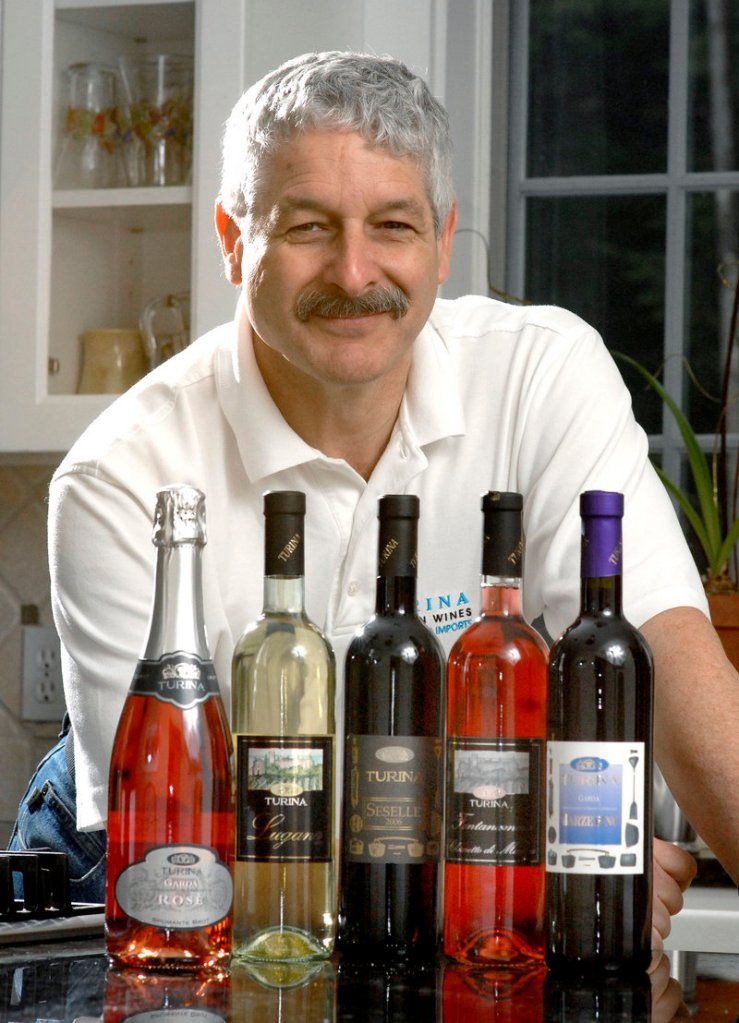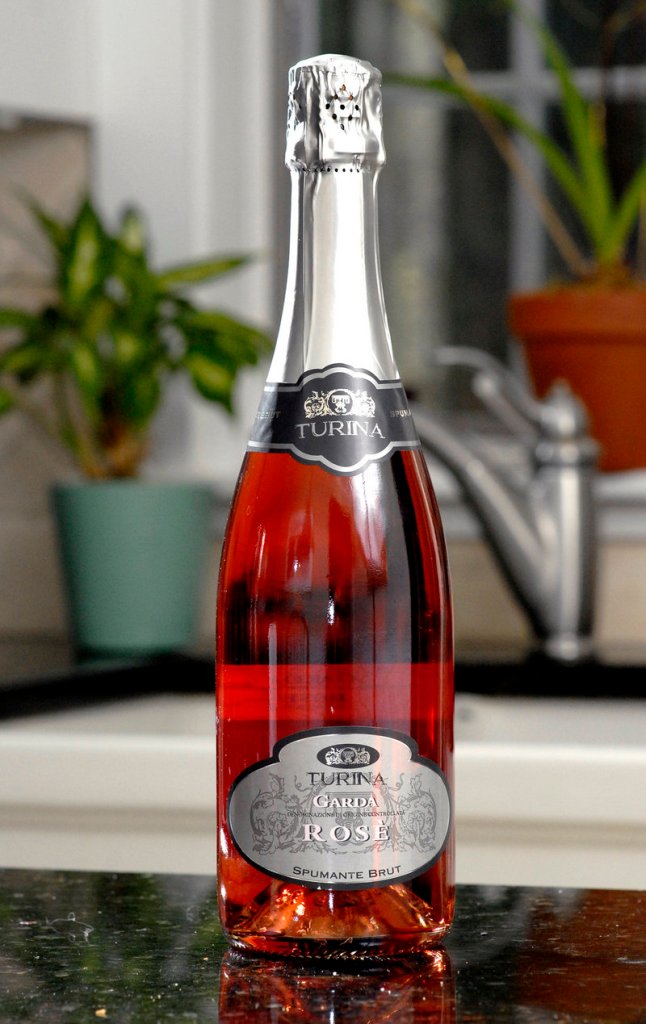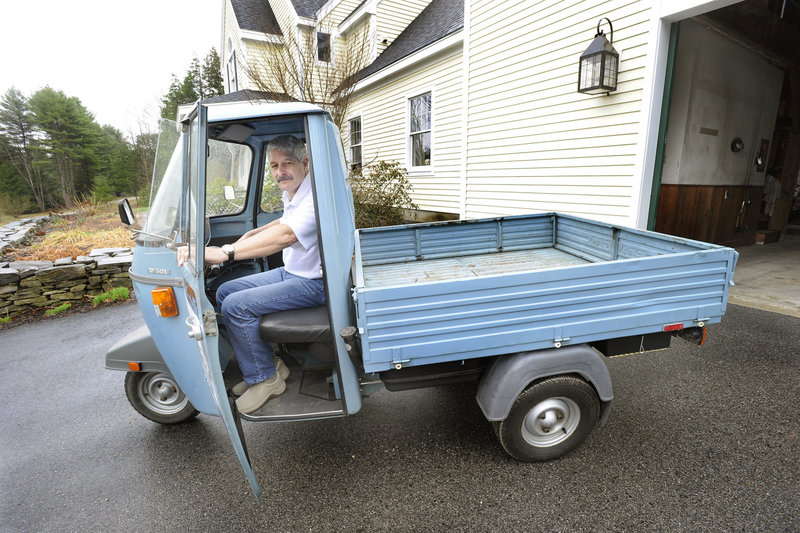PORTLAND – Over lunch at Paciarino — including a glass or two of Seselle, an aged Groppello Reserve — Paul Turina told the story of connecting with his Italian roots.
It began by taking his family to visit a long-lost cousin in northern Italy. Turina had tracked down the cousin using an old photo of his great-uncle standing in front of the family home in Italy at the end of World War II.
One visit turned into two, then three. Every time Turina turned up on their doorstep, his Italian relatives would go down into the basement and bring up a couple of bottles of “family wine” to share. And he always brought some of it home with him to North Yarmouth.
Turina envisioned one of his Italian cousins toiling away in the basement, producing a few bottles of homemade wine like his grandfather made in the United States.
“It was maybe on the third or fourth time we were there, my wife and I were in a restaurant and there on the menu was Turina wine,” he recalled. “And I asked this woman, ‘Where is this from?’ And she said, ‘Oh, it’s just down the street.’
“And that’s how I learned that I had relatives who made wine.”
Turina is now the sole U.S. importer of the wines made by his Italian cousins at Cantine Turina, located in the town of Moniga del Garda on the southwestern shores of Italy’s largest lake.
At first, he brought just enough wine to the States to satisfy family and friends. Now he travels to Italy once or twice a year to visit his family and do business with them, trying to find ways to get the word out about their wines on this side of the Atlantic.
There are four Turina brothers, but only three of them are in the family business. Paolo Turina is the winemaker at Cantine Turina. Dario runs the vineyards, and Luigi takes care of the business side of things.
The brothers’ wines have won some prestigious awards in Europe. The 2007 Turina Chiaretto, a ros?ade from a blend of Groppello and Marzemino grapes, was named the best ros?n Italy.
But Turina wines are virtually unknown in the U.S., because they are more unusual and produced in limited amounts. In Maine, because Paul Turina makes his home here, the wines are stocked in small quantities in a few retail shops and served in a handful of restaurants that include Paciarino, Walter’s and Hugo’s.
“They’re good wines,” Paul Turina said, “it’s just that they have no audience. They’re not the kind of wines that are ever going to sell for $40 a bottle. It’s just the limitations of the grapes.”
THE PRICE IS NICE
Most Turina wines retail for $14 to $19. Locally, they can be found at places such as RSVP in Portland and the Rosemont markets, but searching for them can be hit or miss.
Paul Turina estimates that about 600 to 1,000 bottles of his family’s wines are sold each year in Maine. Turina imports the wines and talk about them at occasional wine dinners and other events, but can’t get involved in actual sales.
“It’s very hard” to expand the business, he said. “There are plenty of people who are very knowledgeable about wine who will never have heard about the grape that’s in this (Seselle) or the other grapes that my family grows. They’re very unusual grapes.”
The Turina vineyards are situated on the shores of Lake Garda, the largest lake in Italy that divides the provinces of Lombardy and Veneto. To the east is Venice; to the west is Milan. The grapes are grown on the southern end of the lake, where the water is shallower and there is a unique microclimate.
The climate is generally mild. This part of Italy is the northernmost spot in the Mediterranean for growing lemons and olive crops. (Turina also imports his family’s olive oil, but in very small quantities.)
The grapes that grow there are finicky. Consider the Marzemino grape, used to make a wine thought to be Mozart’s favorite. In Mozart’s opera “Don Giovanni,” the doomed Don asks for a glass of the wine before being dragged off to hell. (“Versa il vino! Eccellente Marzemino!”)
Marzemino grapes form a dense, tightly-packed cluster that needs lots of sun and hand-trimming.
“If they don’t get a lot of air and sun and wind across them, even with the dew in the morning, they’ll get a mold on the skin,” Turina said. “So to get them to grow well, you have to have lots of low moisture late in the year, lots of sun and lots of air to dry the grape. You have to trim leaves away so the grape gets sun right away. If you don’t, your yield goes way down and they’re very hard to grow.”
LOCAL LISTINGS
The Turina family’s Marzemino is on the wine list at Walter’s, 2 Portland Square.
The Seselle Groppello Reserve served at Paciarino, 468 Fore St., is named after the single vineyard where it’s grown at Cantina Turina. Gropello is fruitier than Marzemino, which tends to be more herbal.
“The Seselle vineyard produces such good fruit that my family ages this wine,” Turina said. “Traditionally, Gropello and Marzemina grapes, they don’t have a lot of tannins, so they don’t age well. There’s no real advantage. You age them four months, six months, and that’s as good as they’re going to get. Consequently, they don’t get to develop all the complexities that some wines do.”
The Chiaretto is a ros?ade mostly from Groppello and Marzemino grapes. Pink with just a touch of effervescence, it’s served very cold and has a flowery, springlike bouquet. It’s the first wine available from the harvest, and its arrival is as highly anticipated in Italy as Beaujolais Nouveau is elsewhere.
“In that part of Italy, this wine is very popular,” Turina said. “This time of year, until June or July, you go to the little caf? everybody’s drinking this pink Chiaretto.”
Turina Chiaretto is served every year at Hugo’s, 88 Middle Street. Chef Rob Evans endorsed the wine when it went to the Italian Expo in Chicago, saying it has “a great acidity that pairs well with a variety of our foods.”
Paul Turina will be leaving for Italy again tomorrow, still searching for ways to make his family’s wines more available here in America.
In the future, he’d like to bring attention to more small European wine makers. As wine consumption in Europe declines, many of these producers are looking to export more of their products to places like the U.S., where consumption is on the rise.
“Every time I go to Italy, I meet someone else who’s like my family, who has a great little wine, begging me,” Turina said. “They want me to take their wine.”
Staff Writer Meredith Goad can be contacted at 791-6332 or at: mgoad@pressherald.com
Send questions/comments to the editors.






Success. Please wait for the page to reload. If the page does not reload within 5 seconds, please refresh the page.
Enter your email and password to access comments.
Hi, to comment on stories you must . This profile is in addition to your subscription and website login.
Already have a commenting profile? .
Invalid username/password.
Please check your email to confirm and complete your registration.
Only subscribers are eligible to post comments. Please subscribe or login first for digital access. Here’s why.
Use the form below to reset your password. When you've submitted your account email, we will send an email with a reset code.